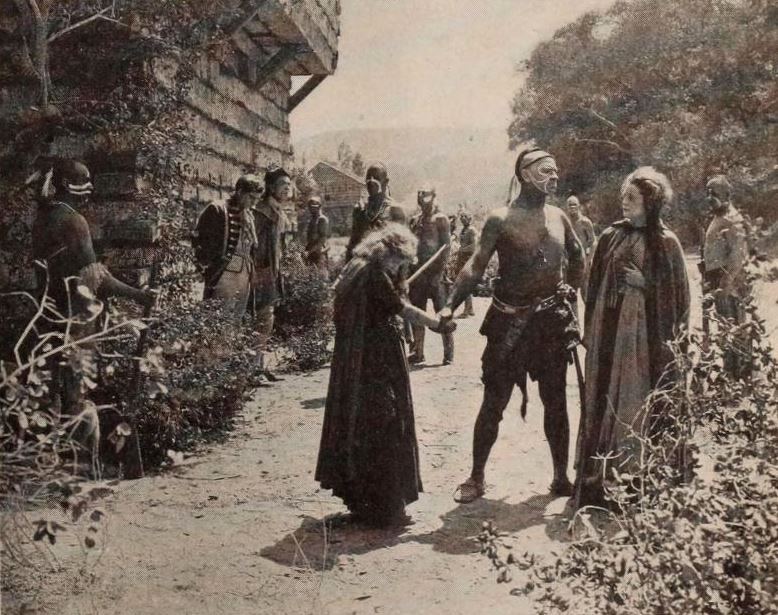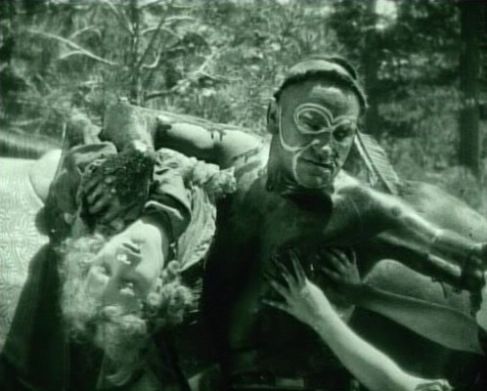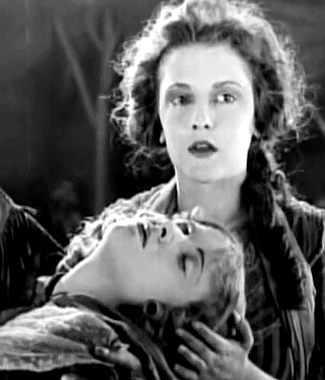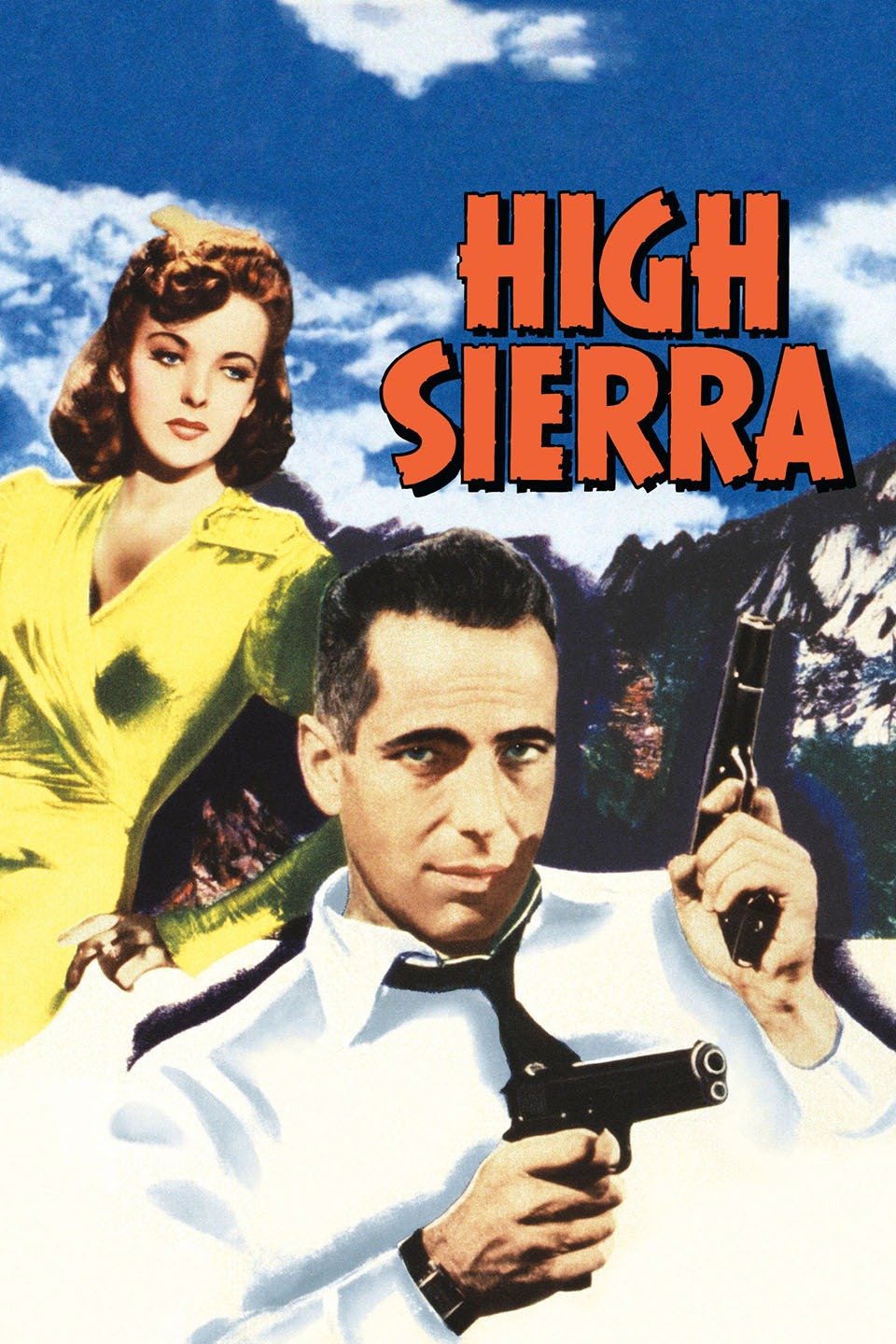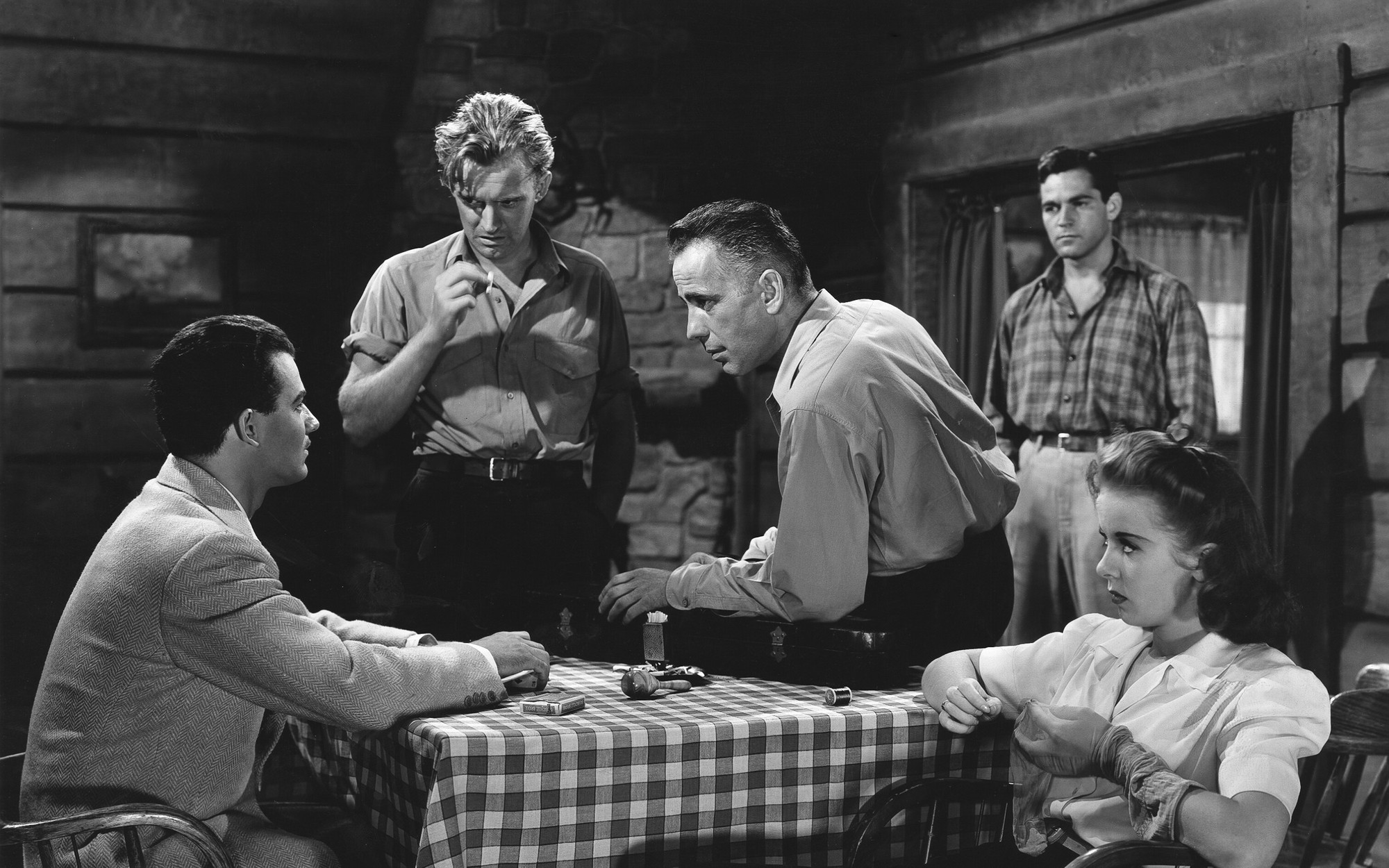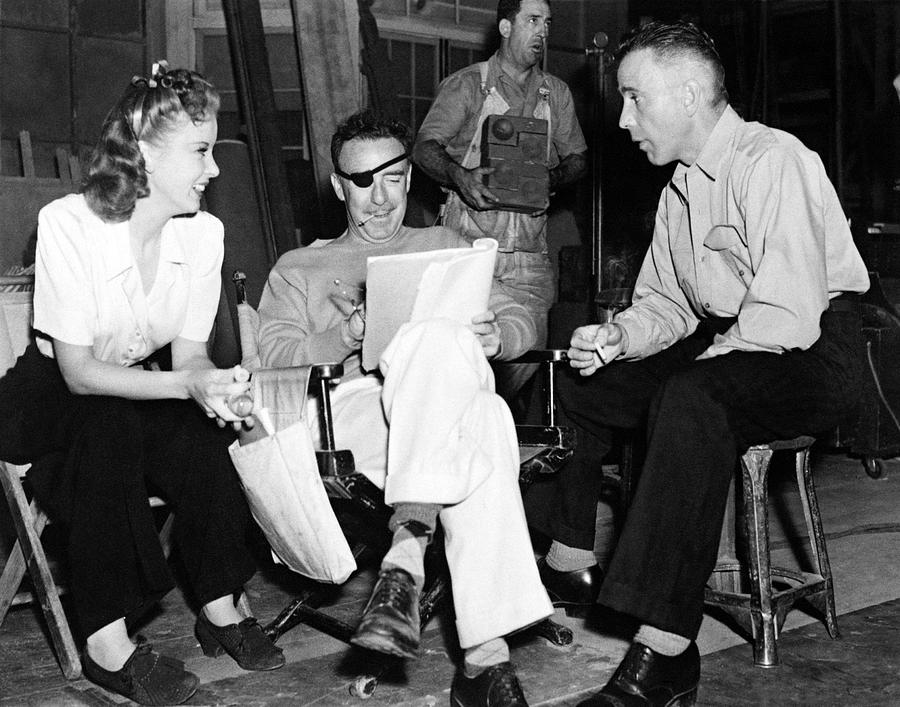“O Último dos Moicanos” é um clássico, sobre
isso não há dúvida. A história foi adaptada para as telas muitas vezes, sendo a
adaptação mais famosa provavelmente aquela feita em 1992 estrelando Daniel
Day-Lewis. Mas hoje focamos numa adaptação bem mais velha, de 1920.
“The Last of the Mohicans” is a classic, no doubt
about that. The story was adapted to the screen many times, being the most
famous adaptation probably the one made in 1992 and starring Daniel Day-Lewis.
But today we focus on a much older adaptation, from 1920.
The story takes place in 1757, when outposts in the Thirteen Colonies were being invaded by the French Army. Colonel Munro (James Gordon) is at one of these outposts, Fort William Henry, and his two daughters Cora (Barbara Bedford) and Alice (Lillian Hall) are at Fort Edward. The two girls go meet their father, going through a shortcut in the forest with the help of Indian guide Magua (Wallace Beery). In the middle of the journey, Magua deserts them as he has other plans. Luckily, they meet the last of the Mohicans, Uncas (Alan Roscoe).
As garotas chegam em segurança, mas os
franceses estão próximos e os britânicos são incapazes de pará-los. Mulheres e
crianças deixam o forte, mas são capturadas ou mortas pela tribo do Hurons. Magua
também está lá, e quer Cora, que agora só tem olhos para Uncas.
The girls arrive safely, but the French are nearby
and the British can’t stop them. Women and children leave the fort, but are taken
captive and / or killed by the Huron tribe. Magua is there too, and he wants
Cora, who now only has eyes for Uncas.
#NemTodoÍndio é malvado, mas os Hurons com
certeza são. Eles desobedeceram à promessa do cacique para os britânicos, que
disse que mulheres e crianças poderiam atravessar o território deles e não
seriam maltratadas. Pelo bel-prazer de estuprar e matar, eles atacam estas
mulheres e jogam crianças pelos ares, matando-as. Os moicanos eram os índios
bons, como no começo é dito que eles eram amigos dos caras-pálidas.
#NotAllIndians are bad, but the Hurons certainly are. They
disobeyed their Chief’s promise to the British, that women and children could
pass their territory and would leave unharmed. For the sheer pleasure of raping
and killing, they attack those women and throw children up in the air to their
deaths. The Mohicans were the good Indians, as in the beginning it’s said that
they were friends with white people.
“O Último dos Moicanos” teve dois diretores: Maurice Tourneur e
Clarence Brown. Tourneur – que dirigiu um dos meus filmes mudos favoritos, “O Pássaro Azul” (1918) – adoeceu durante as filmagens e Clarence Brown, que
trabalhava como editor e diretor assistente, tomou seu lugar para completar o
filme. É por isso que o produto final parece mais um amálgama de dois estilos e
não um espetáculo digno de Tourneur.
“The Last of the Mohicans” had two directors: Maurice
Tourneur and Clarence Brown. Tourneur - who directed one of my favorite silent
films, “The Blue Bird” (1918) - became ill during shooting and Clarence Brown,
who was working as editor and assistant director, stepped up to complete the
film. That’s why the final product seems more like an amalgamation of two
styles and not a full Tourneur spectacle.
Wallace Beery precisa de muita maquiagem para interpretar Magua. Diz-se que Boris Karloff interpreta também um índio neste filme, mas foi impossível reconhecê-lo. Estes eram os tempos em que se valia da yellowface para que atores brancos interpretassem personagens não-brancos, como indígenas. Tendo isto em mente, Beery é um bom – leia-se detestável – vilão. Alan Roscoe também usa a yellowface. Roscoe dividiu as telas com Theda Bara em pelo menos sete filmes, e é mais conhecido por este “O Último dos Moicanos”, pois morreu relativamente jovem em 1933.
Wallace Beery plays Magua relying on heavy makeup. It’s said that Boris Karloff plays an Indian in this film, but it’s impossible to recognize him. These were
the times of yellowface used so white actors could play non-white roles, such
as Indians. This point being noticed, Beery makes a good - read here detestable
- villain. Alan Roscoe also uses yellowface. Roscoe was Theda Bara’s leading
man in at least seven films, and is better known for this “The Last of the
Mohicans”, as he died fairly young in 1933.
Barbara Bedford foi casada com Alan Roscoe – duas vezes!
Primeiro no período entre 1922 e 1928, quando tiveram uma filha, e novamente
entre 1930 e 1933, quando ele faleceu. Barbara esteve em diversos filmes na era
muda, e permaneceu trabalhando como figurante quando os filmes sonoros chegaram
em Hollywood.
Barbara Bedford was married to Alan Roscoe - twice! First in the period between 1922 and 1928, when they had a daughter, and again from 1930 to 1933, when he passed away. Barbara appeared in several films in the silent era, and remained working as an extra when sound came to Hollywood.
Eu me empolguei e também assisti à versão de 1936 de “O Último
dos Moicanos”. Este filme B, produzido pelo estúdio Reliance Pictures, tem como
estrela Randolph Scott interpretando Hawkeye, que se torna o herói da história.
Na versão de 1920, Hawkeye só é citado brevemente. Dado o poder do nome de
Randolph Scott na época, podemos entender a mudança de foco, mas a história de
Cora permanece como a mais interessante.
I got carried away and also watched the 1936 version of “The
Last of the Mohicans”. This B-movie, produced by Reliance Pictures, stars
Randolph Scott as Hawkeye, who becomes the lead of the story. In the 1920
version, Hawkeye is only briefly mentioned. Given Scott’s star power at the
time, we can understand the shift of focus, but Cora’s plot remains the most
interesting.
Os escritos de James Fenimore Cooper já foram
adaptados tanto para as telonas quanto para as telinhas 43 vezes, de acordo com
o IMDb, com uma futura adaptação de “O Último dos Moicanos”, sua obra mais
famosa, em produção como série de TV. Visualmente bela, a versão de 1920 da
história com certeza agradará a todos os públicos.
James Fenimore Cooper’s writings were adapted to the big and
small screen 43 times already, according to IMDb, with an upcoming adaptation
of “The Last of the Mohicans”, his most famous story, in the works as a TV
series. Visually stunning, the 1920 version of the story is sure one to please
all the audiences.
This is my contribution to the 2023 Classic Literature on Film Blogathon, hosted by Paul at Silver Screen Classics.

